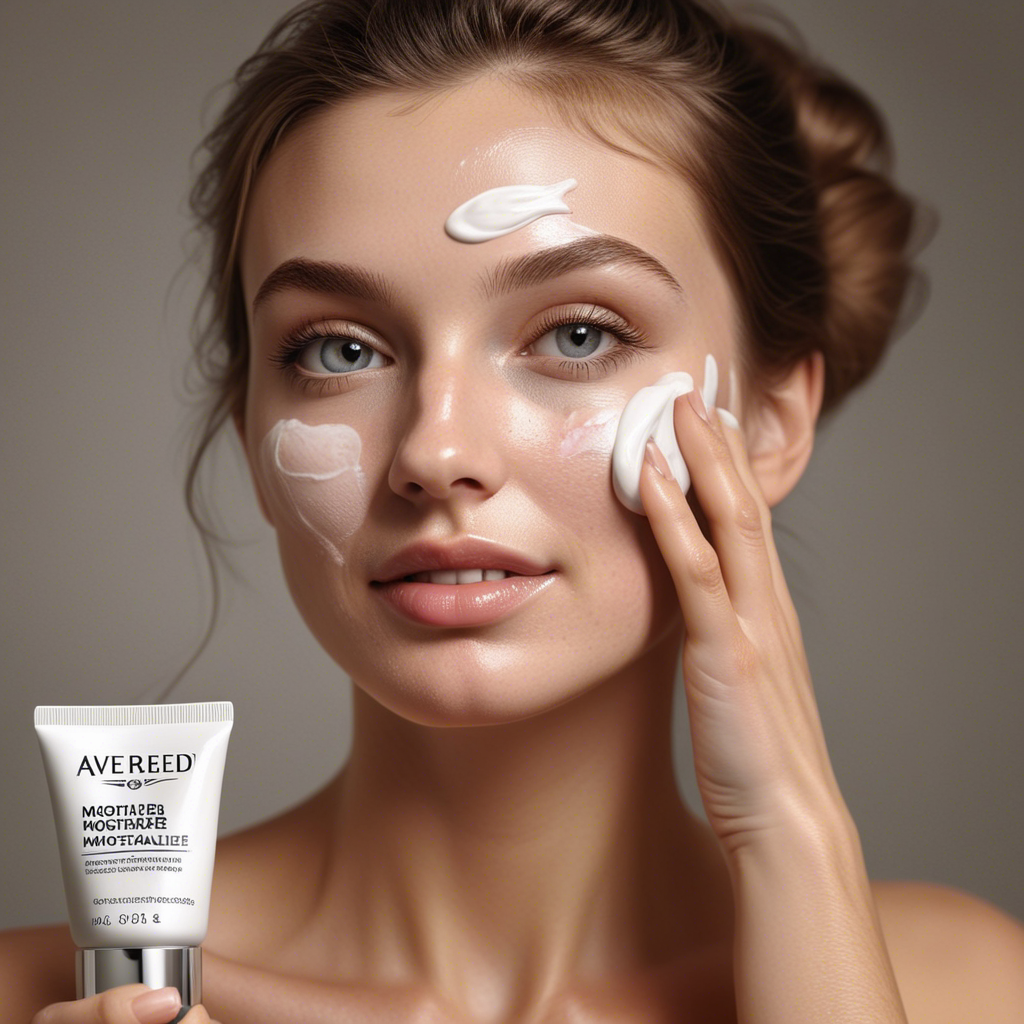Understanding Your Skin Type
To effectively address skin concerns with natural remedies, it is essential to first identify your skin type. Skin can typically be classified into four main categories: dry, oily, combination, and sensitive. Each type exhibits distinct characteristics and requires different care considerations.
Dry skin often feels tight, may appear flaky or rough, and typically lacks moisture. Individuals with this skin type may also experience irritation or redness. To identify dry skin, examine if your complexion feels parched after cleansing, or if fine lines appear more prominent than expected.
Oily skin, on the other hand, is characterized by an excess production of sebum, leading to a shiny appearance, particularly in the T-zone (forehead, nose, and chin). Those with oily skin are more prone to clogged pores and acne breakouts. If your skin feels slick shortly after washing, you likely have an oily skin type.
Combination skin presents characteristics of both dry and oily types. Typically, the T-zone may be oily, while the cheeks and other areas may exhibit dryness. Assessing your skin requires observing its behavior in different areas. If some parts are prone to breakouts while others feel dry, you are likely dealing with combination skin.
Sensitive skin is marked by redness, itching, or irritation, often reacting negatively to specific products or environmental factors. Individuals with this skin type should pay careful attention to how their skin responds to various stimuli. If you frequently experience discomfort or rashes, you may have sensitive skin.
Understanding your skin type is foundational in selecting the right natural skincare remedies tailored to its unique needs. By recognizing the distinguishing features of your skin, you can make more informed choices that will provide optimal results while promoting overall skin health.
Natural Remedies for Common Skin Concerns
Natural skincare remedies have gained increasing popularity due to their gentle yet effective approach to addressing various skin concerns. It is essential to recognize that each skin issue may require different treatments, and understanding these can empower individuals to make informed choices. This section will explore effective natural remedies categorized by common skin concerns, including acne, eczema, dryness, and aging.
Acne is a pervasive skin concern that affects individuals across various age groups. Natural remedies for acne commonly incorporate ingredients like tea tree oil and aloe vera. Tea tree oil possesses antimicrobial properties, which can help combat the bacteria causing acne. To utilize it, a diluted solution can be applied directly to blemishes using a cotton swab. Aloe vera, known for its soothing properties, can be applied liberally to the affected areas, which aids the skin in healing and reducing inflammation.
For those suffering from eczema, a condition characterized by dry and inflamed skin, natural remedies also provide relief. Oatmeal baths are a widely regarded remedy, as colloidal oatmeal can soothe irritation and hydrate the skin. Additionally, applying organic coconut oil can create a barrier on the skin, locking in moisture. Both remedies are applied topically, providing immediate comfort to dry patches.
Dry skin can be addressed using natural oils, such as jojoba or argan oil. These oils mirror the skin’s natural sebum, making them excellent for rehydrating and restoring elasticity. A DIY moisturizing mask can be created using mashed avocados and honey, which hydrate the skin and add essential vitamins.
Aging skin is another common concern that often calls for natural remedies to enhance its appearance. Ingredients like vitamin C-rich rosehip oil can stimulate collagen production, while green tea possesses potent antioxidant properties. Applying either product regularly can improve skin texture and promote a more youthful complexion.
By integrating these accessible, evidence-based solutions into daily skincare regimens, individuals can effectively address their specific skin concerns while maintaining a natural approach to skin health.
The Importance of Lifestyle and Diet
The health of our skin is often a reflection of our overall well-being, highlighting the profound connection between lifestyle choices, dietary habits, and skincare. By understanding this interconnectedness, one can adopt effective strategies to improve skin health and address various skin concerns. A well-balanced diet plays a pivotal role in ensuring the skin receives essential nutrients for repair and regeneration. Foods rich in antioxidants, vitamins, and minerals contribute significantly to skin vitality. For instance, incorporating fruits and vegetables such as berries, leafy greens, and carrots can enhance skin appearance due to their high nutrient content.
Hydration is another critical factor influencing skin health. Drinking adequate amounts of water daily helps maintain skin moisture, promoting a plump and radiant complexion. Dehydration can lead to dryness, dullness, and an increased likelihood of developing fine lines. Alongside hydration, it is important to monitor caffeine and alcohol consumption, as both can lead to dehydration and negatively impact the skin’s appearance.
Moreover, stress management and quality sleep are crucial for maintaining healthy skin. Chronic stress can lead to hormonal imbalances that exacerbate skin issues such as acne and eczema. Practicing relaxation techniques such as mindfulness, yoga, or meditation may help mitigate stress levels. Similarly, ensuring sufficient sleep allows the body to repair and rejuvenate itself, reflecting positively on the skin’s condition.
Integrating skin-friendly habits into daily routines can be simple yet effective. Preparing meals that prioritize whole, unprocessed foods and incorporating healthy fats such as avocados, nuts, and seeds can provide essential fatty acids beneficial for maintaining skin elasticity. Additionally, minimizing sugar intake may reduce inflammation and breakouts, promoting clearer skin.
Ultimately, while natural skincare remedies serve as valuable aids in addressing individual concerns, their efficacy is significantly enhanced when supported by a healthy lifestyle and balanced diet. By prioritizing these aspects, individuals can achieve lasting improvements in their skin health and overall well-being.
DIY Recipes and Application Tips
Creating your own natural skincare products at home can be a rewarding experience, allowing you to tailor remedies to meet your specific skin concerns. Below, we present several easy-to-follow DIY recipes, each designed to harness the benefits of natural ingredients. These recipes are straightforward, requiring minimal preparation steps, yet they can yield effective solutions for various issues.
1. Honey and Oatmeal Face Mask
Ingredients: 2 tablespoons of raw honey, 1 tablespoon of finely ground oats, 1 teaspoon of water.
Instructions: Combine honey and ground oats in a bowl. Gradually add water until the mixture reaches a paste-like consistency. Apply the mask to clean skin and leave it on for 15-20 minutes before rinsing with warm water. This mask is hydrating and suitable for sensitive skin.
2. Coconut Oil and Sugar Scrub
Ingredients: 1 cup of coconut oil, 1 cup of sugar (brown or white), 10 drops of essential oil (optional).
Instructions: Mix coconut oil and sugar in a bowl. If using, add the essential oil for added fragrance and benefits. Store the scrub in an airtight container. Use the scrub in the shower, gently massaging it onto damp skin to exfoliate, then rinse thoroughly.
3. Aloe Vera and Green Tea Serum
Ingredients: ½ cup of aloe vera gel, ¼ cup of brewed green tea (cooled), 1 drop of tea tree oil.
Instructions: Blend aloe vera gel and green tea until smooth. Add tea tree oil and stir well. Apply the serum to your face after cleansing, ideally before moisturizing. This serum is particularly useful for soothing irritated skin and reducing inflammation.
When introducing new skincare products, it is essential to conduct a patch test. Apply a small amount of the product to a discreet area of your skin and wait for 24 hours to ensure there are no adverse reactions. Integrating these remedies into an existing skincare routine can enhance its efficacy; consider utilizing them as needed, based on your skin’s condition and concerns. Adopting a gradual approach allows your skin to adapt while minimizing potential irritation.


